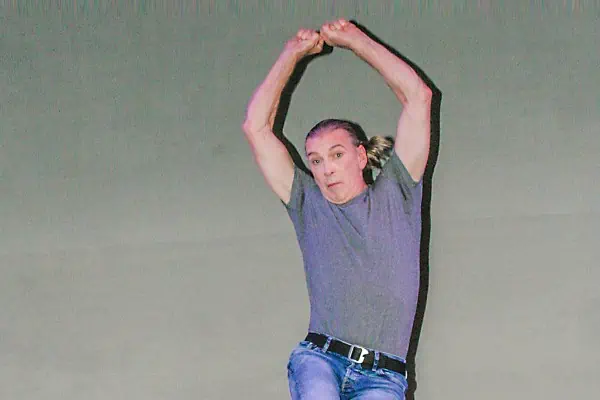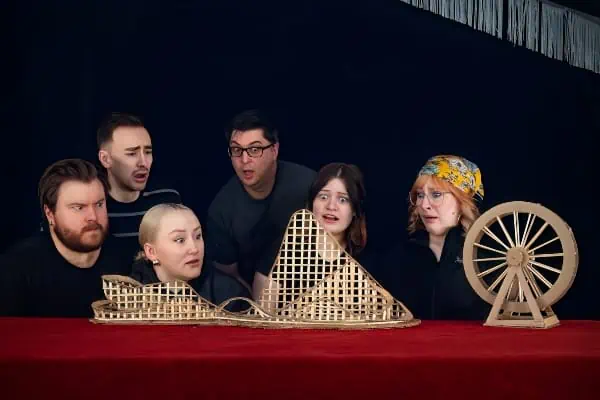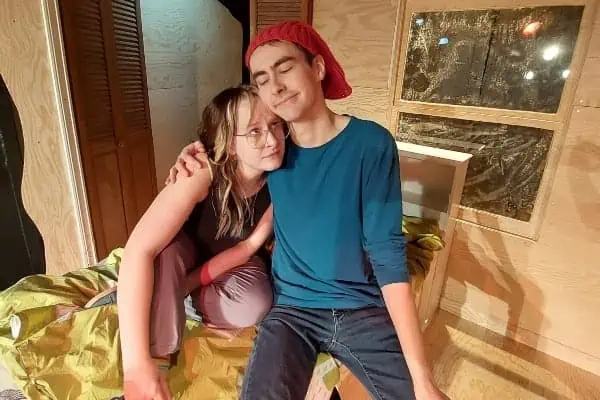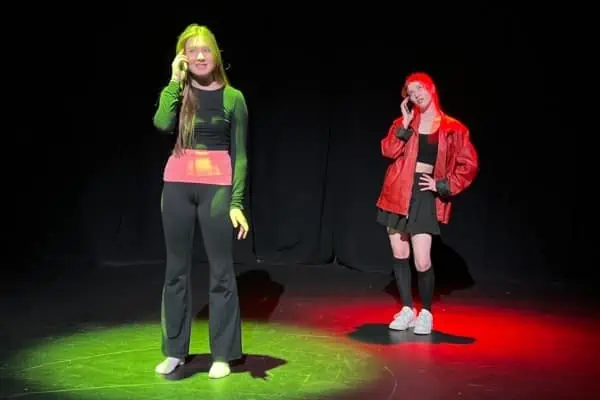Expect the unexpected. This is good advice for both performers and audience at a typical improv event. Mind you, “typical” is a misnomer for a genre defined by having a unique performance every time.
If you’ve ever had a yen to create one-of-a-kind, hilarious scenes, get yourself to the Guild Hall every Tuesday at 8 p.m. for two hours of drop-in improv classes.
Artistic Director Brian Fidler and local performer George Maratos will be leading participants through improv activities. Once a month, they’ll put their skills to the stage with a performance.
“This got its start last season with a project at the Guild called the Improv Project,” Fidler explained. A core group of performers did an ongoing improv show that was part of the regular season, Fidler said.
Its success was interpreted by Fidler and Maratos to mean that both audience and performers had an appetite for more of this type of theatre, where anything can happen.
Before we get too far, a note on terminology: “improv” is short for “improvisational theatre,” and refers to an unscripted performance that takes its cues from various sources, such as the audience or prompts provided on stage.
Improv can take many forms. In short form improv, scenes last a few minutes each. In long form improv, scenes are linked by common characters or settings, some of which can run for years, like a soap opera. Some improv performances resemble a conventional play, with variations driven by the audience.
For the Tuesday sessions, Fidler and Maratos plan to run some improv games, then set up some longer (but not long form) improv scenes.
“It’s an opportunity and a venue for people to build their skills and do some games. But really, it’s a platform to play.”
Fidler enjoys improv because it hones his skills as a performer.
“So many times I’m in a production or a play and for whatever reason, I’ll have to improvise outside of the lines or the script I’ve been given,” he says. “If you keep sharpening the tool, those moments are enjoyable rather than stressful.”
Maratos appreciates improv for the way trust between the performers plays out. Actors rely completely on each other to make the scene succeed, so trust is essential.
“You are collaborating in the moment, trusting one another, and in most cases creating this one-of-a-kind, never-to-be-done-again show,” he said. “The trust required is a big one, both in yourself in that the idea you have will work and in your fellow actors, that they’ll take what you are offering or that they’ll make an offer that works.”
The audience is part of the relationship as well, which is why it’s important that the drop-in include performances with an audience. For those who haven’t witnessed the energy of improv, Fidler encourages them to come to see one of the monthly shows.
“Everything changes when there’s an audience. There’s always a little bit of magic when people think on their feet.”
The weekly drop-in is not just for seasoned performers. Maratos believes doing improv is a way to flex the creativity muscles that so often aren’t used to their potential. He’s seen this creativity bloom when teaching young students.
“Quiet kids that are still trying to find their niche suddenly have an outlet to channel their creativity,” he says. “It’s like a switch going off. They get it, and from there the sky is the limit.”
Improv just might help a person perform in real life, too. Some established improv troupes hire out their services to help corporate clients understand collaboration, adaptability and other skills essential to improv.
“Improv isn’t just about performing on a stage,” Maratos said. “Two of the most important guidelines to good improv are to listen and to accept. I think that’s important in many things in life. Work, relationships, being a human.”
Interested participants can come to the Guild Hall every Tuesday from 8 p.m. to 10 p.m. starting Sept. 6. For more information call 633-3550 or email [email protected].




